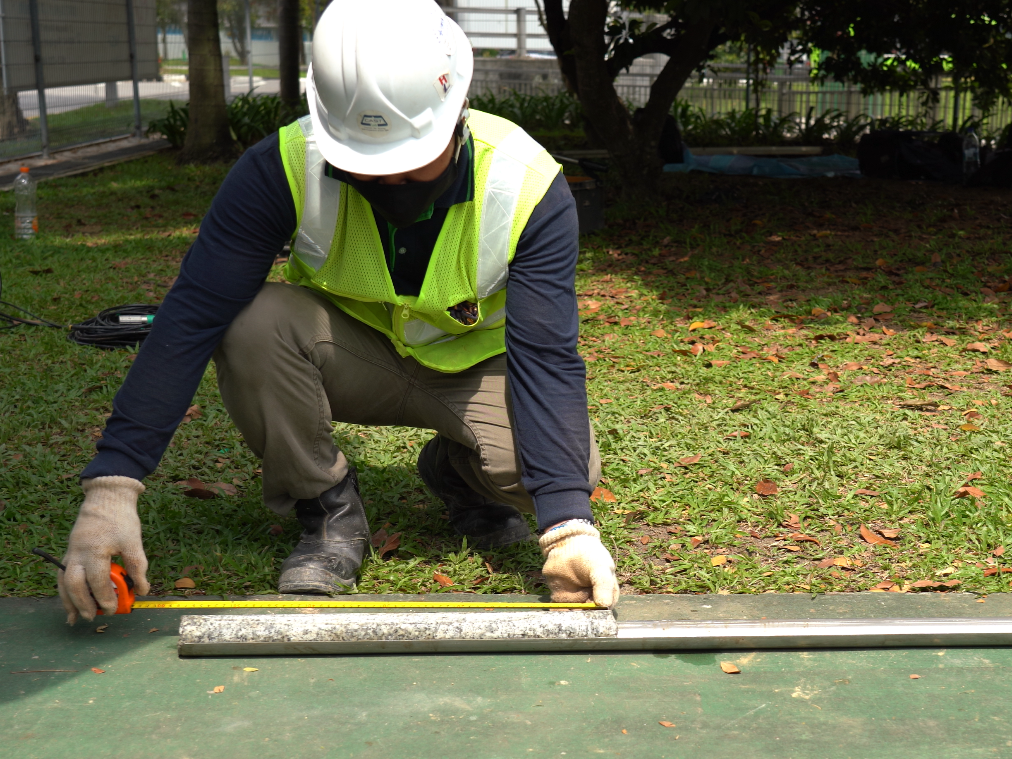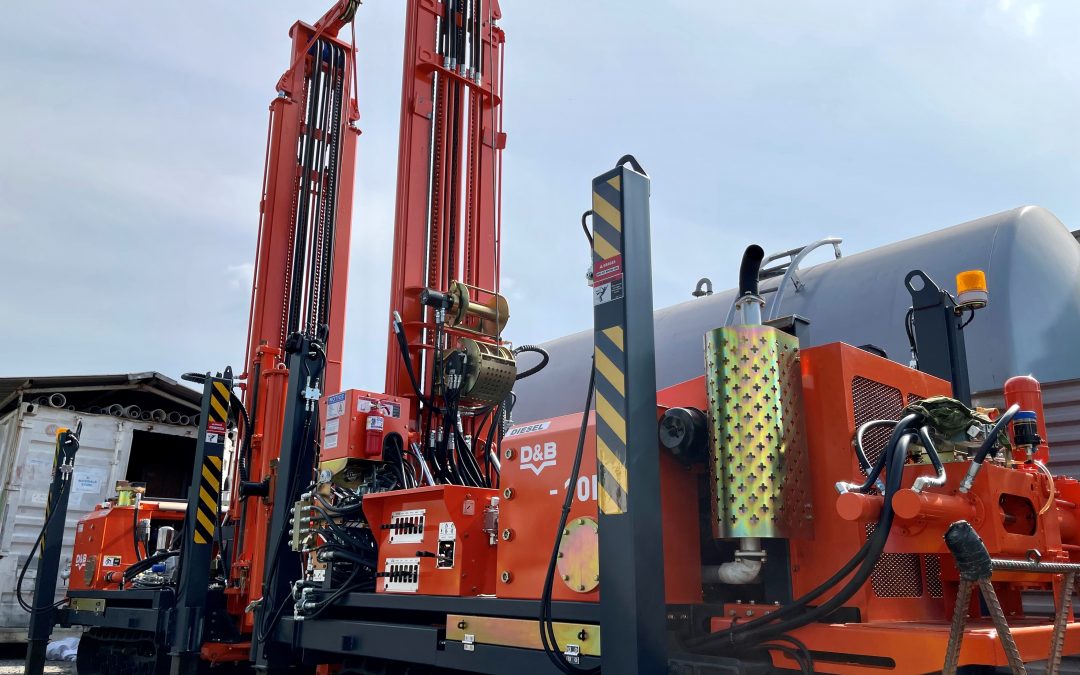Is it here yet? That is a question our Geotechnical Team has been eagerly asking albeit the disruption to global supply chains. Nevertheless, we are grateful that our new drilling machines have arrived, and we are excited to deploy them.
With the addition of our two new Hanjin DB-10KB drilling machines, we are now able to support projects that require drilling up to 200m deep (HW size) and 200mm wide in addition to its capability to drill rods or casing up to 6m length per time with the extendable mast. Furthermore, these machines also come with an attached water pump and SPT hammer which enhances our operational efficiencies and productivity.
What do we use these new machines for?
These machines are used for geotechnical drilling per se, but specifically they are used to create boreholes by drilling to extract soil materials or to gather data for evaluation purposes. The process of drilling bore-holes forms part of various geotechnical site investigations that are conducted to ascertain the conditions and the characteristics of the underlying soil/ground prior to construction works. Gathering accurate data on the geotechnical properties will affect the design of structures such as dams, bridges, highways, embankments, retaining structures and buildings.
Why is geotechnical site investigation needed?
Ensuring soil conditions meet industry and construction standards are crucial to the viability and safety of any construction projects, otherwise the consequences are detrimental. Any incorrect testing procedures can produce inaccurate results which can lead to financial and legal problems in the future should construction proceed. Selecting an accredited laboratory not only reduce financial and legal risk but also provide the confidence in data accuracy for further design or construction works.
How is geotechnical site investigation conducted?
Various in situ tests such as SPT, PMT, VST, and permeability test etc. will be carried out at site to determine the physical properties and parameters of the soil. Upon drilling, undisturbed (UD) soil materials/samples are extracted with a UD sampler tube. Thereafter, the UD samples are prepared and tested in laboratories for various mechanical, physical, and chemical tests. These tests are conducted by qualified geotechnical engineers who oversee the process to ensure it complies with national standards, guaranteeing the reliability and integrity of the results. It is therefore vital to choose a trusted and accredited laboratory such as CAST Laboratories that provides geotechnical drilling and soil investigation services across Singapore, Malaysia and Cambodia.
To find out more about our geotechnical drilling or site investigation services, contact us today at +65 6801 6000.






 Member Login
Member Login


Recent Comments